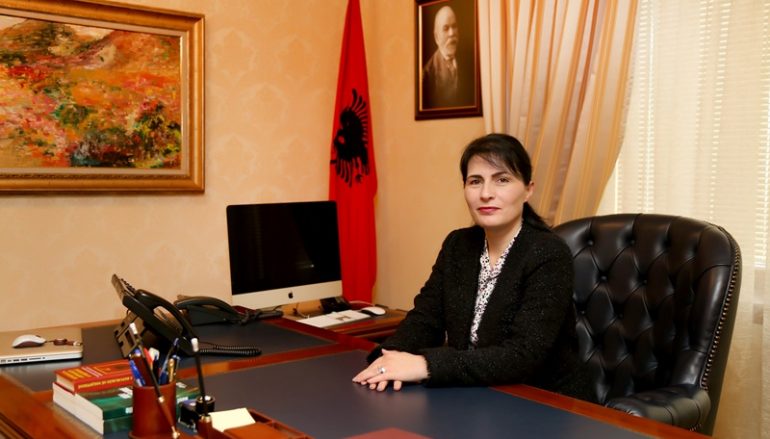
Tomorrow, Temporary General Prosecutor Arta Marku will be vetted by the Independent Qualification Commission (KPK). Besides her assets, the KPK will also review her professional record and ethics. This review will be in part be based on a report prepared by the National Security Agency (DSIK), which falls under the Ministry of Interior Affairs. As this Minister of Interior Fatmir Xhafaj has openly sponsored Marku’s nomination, it appears unlikely that the DSIK report will contain any unwelcome suprises.
Much of the vetting of Marku will therefore depend on the research done by the KPK and the aptitude of its members Genta Tafa (Bungo), Pamela Qirko, and Suela Zhegu. Because throughout her short career as Temporary General Prosecutor, Marku has been involved in numerous infractions of the law, undermining the justice reform:
1. Marku was appointed in violation of the Constitution by a simple majority in Parliament and without being vetted, after legal opinion of EURALIUS and OPDAT argued this would be no problem as she would be temporary and have no real powers. Her appointment was condemned by Freedom House as “another blow” to the “anticorruption effort.”
2. In violation of the Constitution, art. 149/a(1)(a), Marku has appointed, transferred, and dismissed prosecutors, including those related to high-profile investigations of politicians. Only the High Prosecutorial Council is allowed to make such decisions.
3. In violation of the Criminal Procedural Code art. 491, Marku allowed the extradition of Nazer Seiti, member of the Tahiri–Habilaj criminal group, to Italy even though the Prosecution Office was investigating him in the context of former minister Saimir Tahiri’s involvement in international drug trafficking.
4. In violation of the Constitution and Law 95/2016 “On the organization and functioning of institutions for combating corruption and organized crime,” and Law 97/2016 “On the organization and functioning of the Prosecution Office in the Republic of Albania,” Marku has set up a Special Prosecution Office, which is not independent and has not been appointed by the High Prosecutorial Council.
The vetting of Arta Marku is much more than just another case treated by the KPK; in absence of a functional Constitutional Court, it will pass a judgment on the legality of the Temporary General Prosecutor’s actions, and by extension the legality of the interventions of the government into the Prosecution Office.
Another aspect to watch is the report that will be filed by the International Monitoring Operation (ONM). Will it contain any mention of the politicization of the Prosecution Office under Marku, or simply ignore the situation? The Management Board of the ONM contains outgoing US ambassador Donald Lu and outgoing EU ambassador Romana Vlahutin, both who signed off on the EURALIUS legal opinion that opened the road to Marku’s election in December 2017.
Marku’s vetting will therefore be one of the most important test cases for the justice reform: will the KPK be able to withstand the enormous pressure of the government, the EU Delegation, EURALIUS, and the US Embassy, and provide an actually critical and fair evaluation of Marku’s tenure? If not, all hope that the vetting will bring any fundamental positive change to the justice system will be lost.

